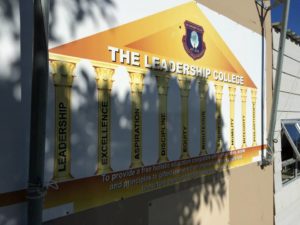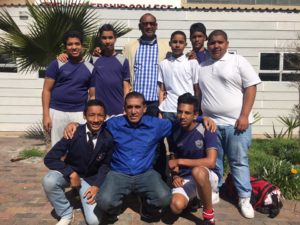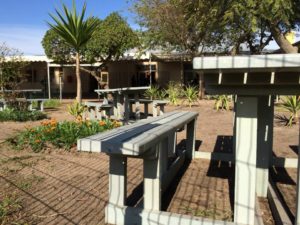The Leadership College
The Reverse Generational Contract (RGC) as a financial model, requires a vast amount of data for the calculations to be fair and financially sustainable. The feasibility study, in South Africa and Rwanda, will include the identification of three very important aspects:
1. The needs and skills gap in relation to employment opportunities in the labour market,
2. The structures and barriers to entry of higher education systems, and most importantly;
3. To prove that framework conditions for the RGC are in place.
A sustainable, financially sound business model is a key success factor for the RGC, and so, we are building a network of key partners who will assist during our feasibility study. We would, therefore like to introduce you to one of our partners, whom we are very excited to be working with – The Leadership College.
On the outskirts of Cape Town, far away from the wealthy suburbs, is a community of over 300 000 people. Everyone who has ever travelled to the city will know this flat, vast area with rows upon rows of fragile tin structures, tiny wooden houses, or simple government housing as the Cape Flats. It is a strong contrast to the mansions built beneath Table Mountain, a clear indicator of the extreme economic inequality in Cape Town.
 Manenberg, an area in the Cape Flats, is notoriously known for its gang violence. Children growing up here are exposed to violence, drugs and gangs. Many of them come from child-led households and have very fragile support structures. However, there is one support structure within this community that has become a beacon of hope – The Leadership College. The Leadership College, or TLC as it is fondly referred to, offers children in Manenberg high-quality education and a nurturing environment. Ashra Norton, the Founder of TLC says, “When the department closed the schools in the area because of gang violence, it was school as usual for us, with nearly a full attendance list. I strongly believe that children are safer inside the school grounds than at home.”
Manenberg, an area in the Cape Flats, is notoriously known for its gang violence. Children growing up here are exposed to violence, drugs and gangs. Many of them come from child-led households and have very fragile support structures. However, there is one support structure within this community that has become a beacon of hope – The Leadership College. The Leadership College, or TLC as it is fondly referred to, offers children in Manenberg high-quality education and a nurturing environment. Ashra Norton, the Founder of TLC says, “When the department closed the schools in the area because of gang violence, it was school as usual for us, with nearly a full attendance list. I strongly believe that children are safer inside the school grounds than at home.”
For most of us, attending university or even high school is not something we question. We have access to electricity and a desk where we can do our homework, hot water to have a shower before the school day starts and enough food to pack a lunch. This is not the same for all young students in Manenberg, but The Leadership College is changing this. Here every single, student’s needs are taken seriously.
The building structures of The Leadership College may be modest, but it is what happens inside these buildings that makes this place so unique. Mr Atcha, the Principal, stands at the school gate and greets all 650 high school students by name every morning. He knows each pupil and quickly recognises if they have something troubling them. The door to his office is always open and many hours are spent assisting students with problems they may be facing at school or at home.
All the teachers work hard; nurturing these young leaders, shaping them into young people that strive for excellence, move forward with ambition and give back to their community. The quality of the education they offer is evident in the annual results of the final school leaving exams, where 92% of learners passed their Matric. Once scholars have left school they continue to be a part of the TLC community, the few that have the opportunity to attend University come back and give workshops or donate time and resources to the community. This is an example of a solidarity community, one that speaks to the core values of the RGC.
The RGC project team is very inspired by the work this school does. Over the last 5 years, they have expanded and now have 5 schools in the area. We are honoured to say that The Leadership College has agreed to partner with us for our research. With their help, we will be able to establish what the exact barriers to tertiary education are and how best to adapt our model to enable more students to attend University. We will also learn what it means to build a community that stands together, in solidarity for the future of young people in South Africa.
We look forward to working with a research partner that will help us to truly understand the context in which we wish to work in the future.


What is the “RGC in low and middle income countries” project?
L’appel Deutschland and CHANCEN eG have partnered to expand the Reverse Generational Contract into Africa. The Reverse Generational Contract (RGC) is a financial model that offers fair financing to students. By means of impact investments, students’ fees are covered by a fund which is managed by a cooperative. Once students have graduated, they make relative, income based repayments. The repayments are a set percentage of the beneficiary’s salary, as stated in the binding contract between the parties involved. The model ensures everyone has equal opportunities, irrespective of their financial background. CHANCEN has vast experience in sustainable financing of education, the best partner in this area. L’appel is an NGO with field experience in implementing RGC like models in Sierra Leone. Both are born from the University of Witten/Herdecke, we share similar values and carry the same vision.

